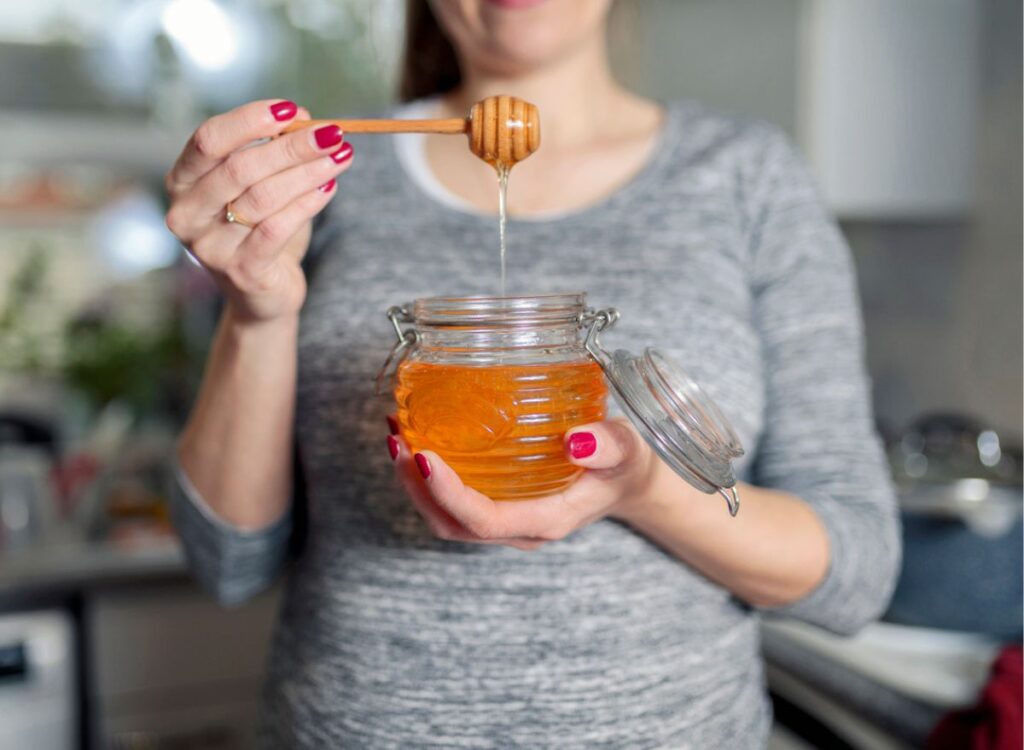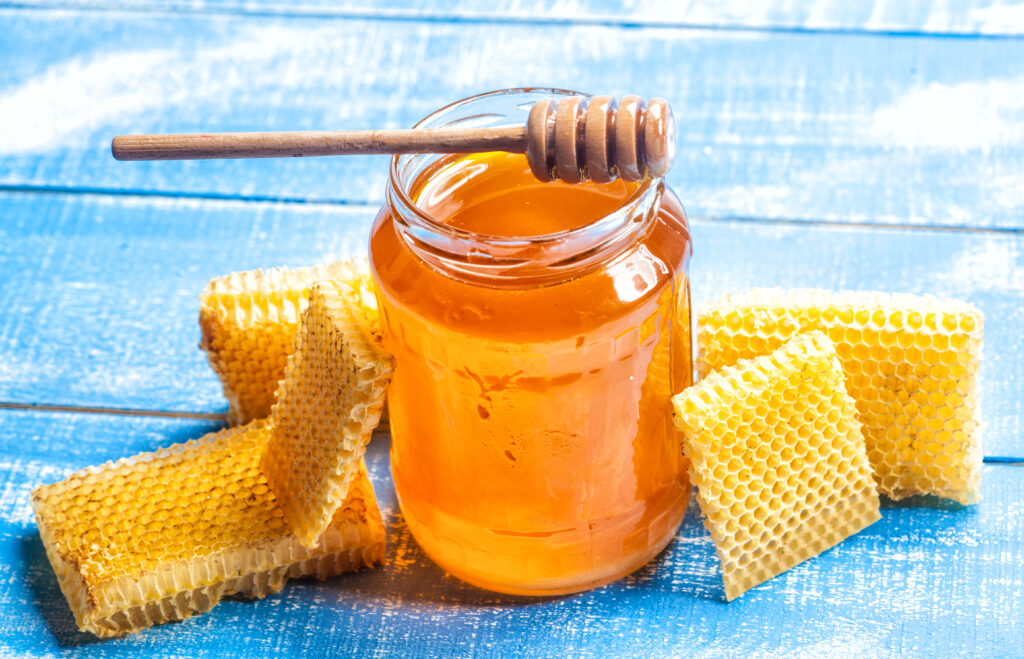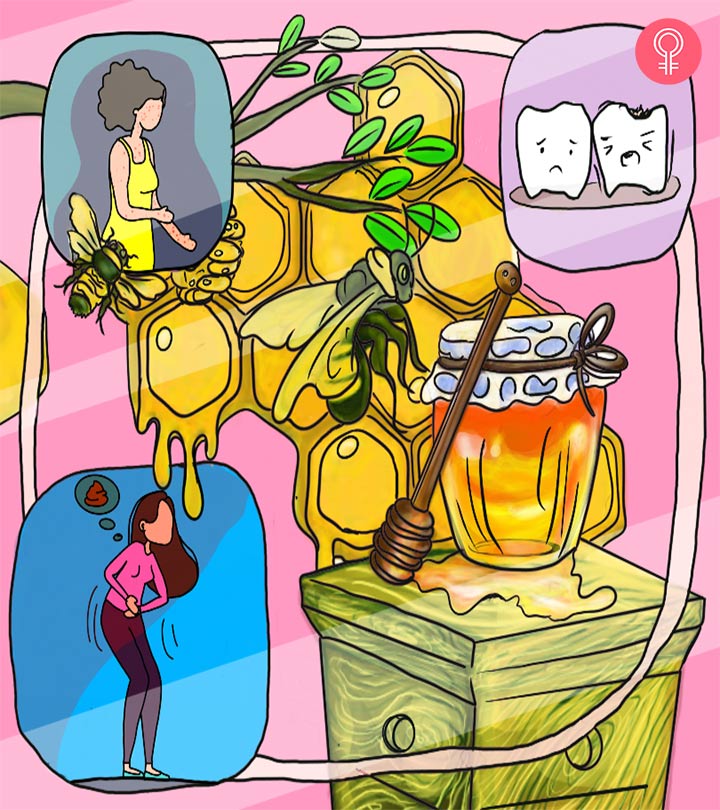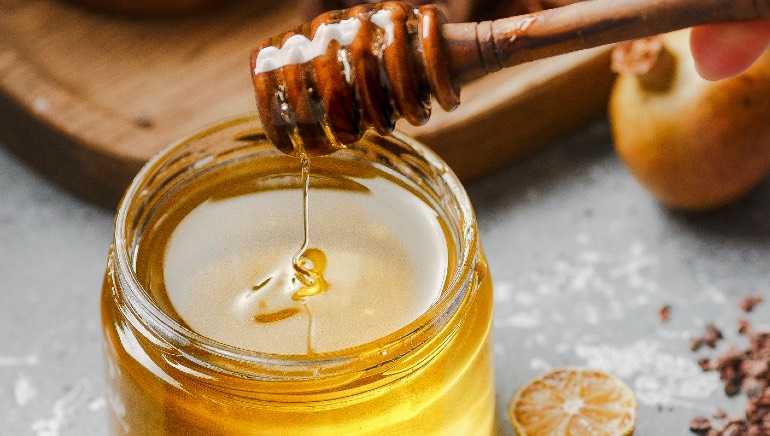
So you’re a honey lover, huh? Well, you’re not alone! Honey has been a beloved sweetener for centuries, with its golden hues and rich, indulgent flavor. However, as with any food, it’s important to be aware of potential risks. Although honey is generally considered safe for consumption, there are a few things to keep in mind. From the possibility of allergic reactions to the potential contamination with harmful bacteria, this article will uncover the risks associated with indulging in nature’s golden nectar. Stick around, my friend, and let’s explore the not-so-sweet side of honey together.

Allergies
Honey Allergies
Honey is generally considered safe for consumption, but it can cause allergic reactions in some individuals. If you have a honey allergy, your body’s immune system reacts to the proteins found in honey, triggering symptoms such as itching, swelling, hives, or even difficulty breathing. It is important to note that honey allergies are relatively rare, but if you experience any allergic symptoms after consuming honey, it is recommended to seek medical advice and get tested for honey allergies.
Cross-reactivity with Pollens
Cross-reactivity is a phenomenon where proteins in different substances share similarities, leading to an allergic reaction to multiple substances. Some individuals who are allergic to specific pollens may also experience allergic symptoms when consuming honey. This is because bees collect nectar from flowers, and that nectar can contain traces of the pollens that individuals are allergic to. For example, if you are allergic to birch pollen, you may experience mild allergic symptoms when consuming honey made from the nectar of plants pollinated by birch trees. It is essential to be aware of any known pollen allergies you might have to avoid potential cross-reactivity with honey.
Botulism
Risk of Botulinum Toxin Contamination
Botulism is a rare but serious illness caused by the bacterium Clostridium botulinum. While honey is generally safe for most individuals, it should not be given to infants under one year old due to the risk of botulinum toxin contamination. The spores of Clostridium botulinum can be present in honey, but the adult digestive system can handle and resist the toxins produced by these spores. However, an infant’s digestive system is still developing and may not be equipped to handle the botulinum toxin efficiently. Therefore, it is crucial to avoid giving honey to infants to prevent the risk of developing infant botulism.
Toxic Honey
Grayanotoxin Poisoning
Toxic honey, known as grayanotoxin poisoning, is a rare but potentially serious condition that can occur if honey contains certain toxins. This type of poisoning is primarily associated with honey produced from the nectar of certain flowers, such as rhododendrons and azaleas. Grayanotoxins are naturally occurring compounds found in these flowers and can be transferred to honey produced from their nectar. Symptoms of grayanotoxin poisoning can include dizziness, nausea, vomiting, excessive salivation, and in severe cases, even seizures or cardiac issues. It is important to be cautious when obtaining or consuming honey from unknown sources and ensure that it is sourced from reputable beekeepers to avoid any risk of toxic honey.
Sugar content
Effect on Blood Sugar Levels
honey is a natural sweetener and contains a significant amount of sugar. While it is a more natural alternative to refined sugar, it can still affect blood sugar levels, especially for individuals with diabetes or those with impaired glucose tolerance. Honey is composed mainly of fructose and glucose, which can cause a rapid rise in blood sugar levels upon consumption. It is important for individuals with diabetes or other blood sugar concerns to moderate their honey intake and monitor their blood sugar levels accordingly.
Potential Weight Gain
Due to its high sugar content, excessive consumption of honey can contribute to weight gain. While honey does contain some essential nutrients and antioxidants, it is still calorie-dense. Consuming too much honey without proper portion control can lead to an excessive calorie intake, which may contribute to weight gain over time. It is essential to consume honey in moderation and consider its caloric content as part of an overall balanced diet.

Bacterial Contamination
Clostridium botulinum
As mentioned earlier, honey can sometimes contain spores of the bacterium Clostridium botulinum, which can produce botulinum toxin. While adults have developed a resistance to this toxin, it can still pose a risk to infants. The spores of Clostridium botulinum can be found in dust, soil, and various food sources, including honey. To minimize the risk of bacterial contamination, it is crucial to ensure that honey is handled and stored properly. It is also important to note that pasteurized honey has undergone a heating process that kills any potential bacteria or spores.
Other Bacterial Infections
Apart from Clostridium botulinum, honey can potentially harbor other bacterial contaminants. However, the risk of bacterial infections from honey is generally low for healthy individuals with a fully functioning immune system. Nevertheless, individuals with compromised immune systems, such as those undergoing chemotherapy or with certain medical conditions, may be more susceptible to bacterial infections from tainted honey. It is advisable to exercise caution and consult a healthcare professional for personalized advice if you have a weakened immune system.
Pesticide Residues
Pesticide Use in Beekeeping
Beekeepers may use pesticides to protect their bees from various pests or diseases that can harm the hives. However, the use of pesticides introduces the possibility of pesticide residues in honey. Pesticides or their breakdown products can find their way into the honey when bees collect nectar from plants that have been treated with pesticides. While regulatory bodies enforce safety standards and limits for pesticide residues, it is still important to choose honey from reputable sources that follow good beekeeping practices to minimize the risk of pesticide exposure.
Impact on Human Health
The impact of pesticide residues in honey on human health is a topic of ongoing research and debate. Some studies suggest a potential association between long-term exposure to low levels of pesticide residues and adverse health effects, such as developmental disorders and certain types of cancer. However, the risk to an individual from consuming honey with pesticide residues is generally considered to be low. To reduce potential exposure, choosing organic honey or honey from trusted sources that prioritize sustainable and environmentally friendly beekeeping practices can be a prudent choice.

Harmful Substances
Chemical Contaminants
Honey can sometimes contain chemical contaminants, which are substances that are not naturally present in honey but can find their way into it through various means. These contaminants can include substances such as heavy metals (e.g., lead, cadmium) or pesticides not directly related to beekeeping practices. While regulatory bodies establish safety standards and limits for these contaminants in honey, potential exposure to harmful substances is another reason to choose honey from reputable sources that prioritize quality control and rigorous testing.
Antibiotics and Heavy Metals
In some cases, honey may contain traces of antibiotics or heavy metals, which can be harmful if consumed in large amounts or over an extended period. Antibiotics can be used in beekeeping practices to treat certain diseases affecting bees, and traces of these antibiotics may be present in the honey. Similarly, heavy metals can enter honey through various environmental factors. To minimize the risk of exposure to these harmful substances, it is advisable to choose honey sourced from beekeepers who follow responsible beekeeping practices and prioritize the safety and quality of their products.
Infants and Children
Risk of Infant Botulism
As mentioned previously, honey should not be given to infants under the age of one to prevent the risk of botulinum toxin contamination. Infant botulism occurs when the immature digestive system of an infant allows Clostridium botulinum spores to multiply and produce botulinum toxin, leading to potentially severe illness. It is crucial for parents and caregivers to be aware of this risk and refrain from introducing honey into an infant’s diet until after their first birthday.
Introduction of Allergens
When introducing solid foods to infants, including honey, there is a possibility of introducing allergens. Honey contains proteins that can cause allergies in some individuals, and the immune systems of infants are still developing. It is generally recommended to introduce solid foods gradually and monitor for any allergic reactions. Due to the potential for honey allergies and the risk of other food allergies, it is advisable to consult with a pediatrician or healthcare professional before introducing honey or any other potential allergenic foods to infants.

Dental Health
Effect on Tooth Decay
While natural, honey is still a sweetener and contains sugars that can contribute to tooth decay if consumed excessively or not followed by proper oral hygiene. Bacteria in the mouth feed on sugars, producing acids that can erode tooth enamel and lead to cavities. It is important to consume honey in moderation, practice good oral hygiene habits such as regular brushing and flossing, and visit the dentist regularly to maintain optimal dental health.
Acidity and Enamel Erosion
Honey, like many other foods, can have varying levels of acidity. Acidic foods and drinks can erode tooth enamel over time, making teeth more susceptible to cavities and sensitivity. While honey is generally considered to have a low to moderate acidity, excessive consumption or frequent exposure to acidic foods and drinks, including honey, can contribute to enamel erosion. It is advisable to enjoy honey as part of a balanced diet and be mindful of overall oral health by minimizing prolonged exposure to acidic substances and practicing good oral hygiene.
Antibiotic Resistance
Honey as a Source of Antibiotic Resistance
The presence of antibiotic residues in some honey has raised concerns about the potential contribution to antibiotic resistance in bacteria. Antibiotics used in beekeeping practices may leave traces in honey, and exposure to low levels of antibiotics over time can contribute to the development of antibiotic-resistant bacteria. While the impact of honey consumption on antibiotic resistance in humans is not yet fully understood, it is essential to emphasize the responsible use of antibiotics in both beekeeping and human healthcare to mitigate the risk of antibiotic resistance development.
In conclusion, while honey is generally considered safe for consumption, there are several risks associated with its consumption that individuals should be aware of. These risks include honey allergies, the risk of botulinum toxin contamination in infants, the possibility of toxic honey, the impact on blood sugar levels and weight, potential bacterial contamination, pesticide residues, harmful substances, considerations for infants and children, dental health effects, and the potential contribution to antibiotic resistance. By understanding these risks and making informed choices about the honey we consume, we can continue to enjoy the many benefits of this natural sweetener while minimizing any potential harm. Remember, moderation and choosing honey from reputable sources are key to safely enjoying this delicious and versatile food.
